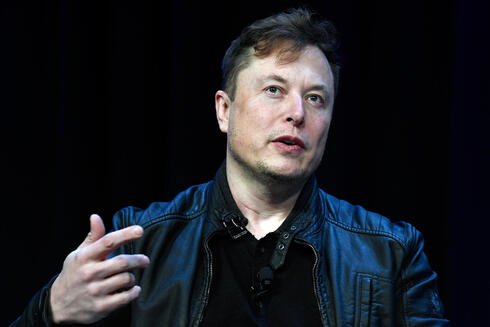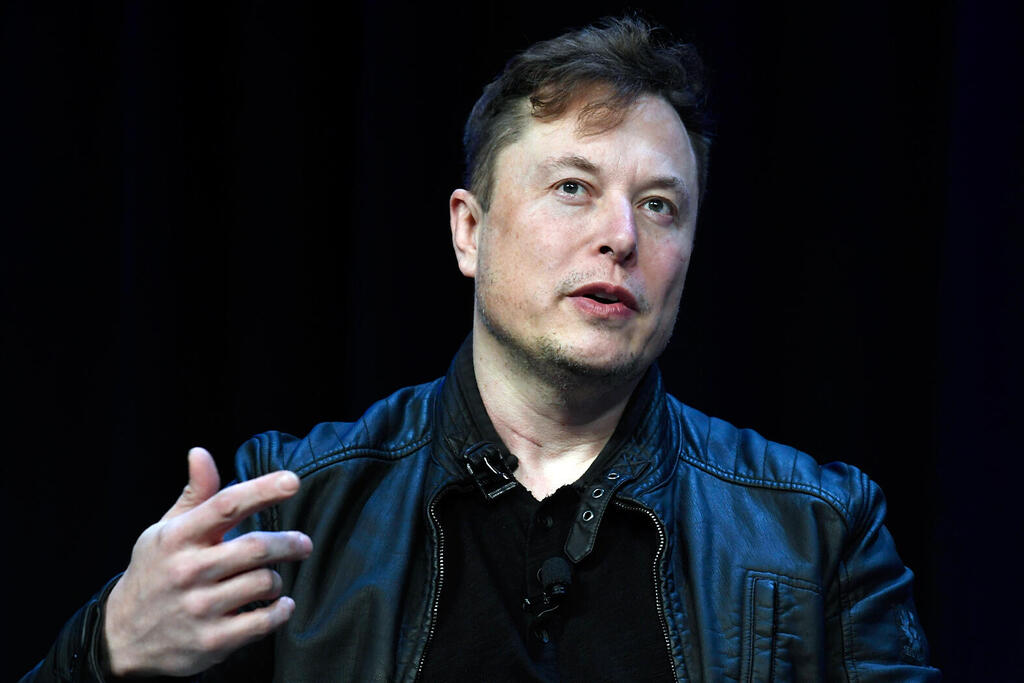
ISRAEL AT WAR
“Israel will use all its means to prevent the use of Starlink satellites in Gaza"
Elon Musk announced that he would allow humanitarian organizations in Gaza to use the satellite system - after Israel cut off communications to effectively fight the terrorist organization Hamas, which controls the Gaza Strip
Billionaire Elon Musk announced on Saturday that he is willing to operate SpaceX's satellite internet system Starlink in the Gaza Strip area for the benefit of aid organizations. “Starlink will support connectivity to internationally recognized aid organizations in Gaza”, Musk posted on his X (formerly Twitter) account. However, once Starlink is introduced into this area, it may not be possible to deny the terrorist organization Hamas access to the system. This introduction could potentially provide significant assistance to the terrorist organization in its conflict with Israel.
On Friday, in preparation for a major ground incursion into the Gaza Strip, the Israeli Defense Forces (IDF) launched an operation targeting internet and media infrastructure in the region. The primary objective of this action was to disrupt communication among Hamas operatives, hindering their ability to prepare, coordinate, and respond to Israeli military activities within the Gaza Strip. While this move raises concerns about potential harm to civilians, the military viewpoint justifies it as a strategic blockade aimed at safeguarding the lives of Israeli soldiers and enhancing the effectiveness of the upcoming ground offensive.
In response to Musk's announcement, Israeli Communications Minister Shlomo Karhi stated on Saturday: “Israel will use all means at its disposal to fight this. Hamas will use it for terrorist activities. There is no doubt about it, we know it, and Musk knows it. HAMAS is ISIS. Perhaps Musk would be willing to condition it with the release of our abducted babies, sons, daughters, elderly people. All of them! By then, my office will cut ties with Starlink.”
Cutting off most of the communications between the Gaza Strip and the world has garnered criticism from various sides, including American Congresswoman Alexandria Ocasio-Cortez. She expressed her concerns on X, stating: "Cutting off all media access for a population of 2.2 million people is unacceptable. I cannot fathom how such an action can be justified." Notably, three weeks ago, on October 7, Hamas terrorists brutally massacred and murdered over 1,400 Israeli civilians (babies, children, women and the elderly) , injured 4,000 more and kidnapped over 200 innocent civilians to the Gaza Strip. Ocasio-Cortez primarily discussed the issue in the context of Israel's response and refrained from unequivocally condemning the Hamas without reservations. Ocasio-Cortez received a surprising support from Musk, the owner of X, Tesla, and SpaceX, who pledged to deploy SpaceX's Starlink satellite internet system in Gaza.
With the assistance of a vast fleet of thousands of small satellites orbiting the Earth in low orbital course, Starlink can offer high-speed internet access to nearly any location worldwide, eliminating the need for extensive local infrastructure, aside from a relatively small relay station that communicates with the array of satellites. The initial satellites of the system were launched into space in 2019 and have been consistently launched almost every week since. Currently, Musk oversees more than 4,500 active internet satellites orbiting the Earth, constituting 50% of all satellites and delivering satellite connectivity to approximately 60 countries.
The ultimate goal is to expand this constellation to 42,000 satellites, ensuring global coverage. The system gained international recognition after the Ukrainian military began employing it in the wake of the Russian invasion last year, which resulted in the destruction of local infrastructure in the areas under Russian control. Approximately two weeks ago, Communications Minister Karhi announced ongoing negotiations regarding the deployment of the system in Israel.
According to Musk, there are several issues to consider. At the most basic level, connecting to the system requires the use of dedicated ground stations, and it's uncertain whether Israel will approve their introduction into the Gaza Strip. More significantly, even though Musk asserts that the system will be used exclusively for the benefit of humanitarian organizations, in practice, Starlink may not have the means to verify the identities of system users, potentially allowing Hamas to seize control of the ground stations for its own purposes. In fact, it's highly likely that if Starlink is indeed activated in the Gaza Strip, Hamas will gain access to the internet through Musk's initiative.
As the primary owner of Starlink, Elon Musk is facing scrutiny for his recent decision to operate the satellite internet system in the Gaza Strip. Concerns are being raised over the potential consequences, as it is practically impossible for Starlink to distinguish between users from aid organizations and those affiliated with Hamas, a designated terrorist group. This move may inadvertently provide direct assistance to Hamas in its ongoing conflict with Israel.
Musk's decision comes less than a month after a meeting with Israeli Prime Minister Benjamin Netanyahu, during which he received a public endorsement. Netanyahu remarked: "I also know that you oppose anti-Semitism." This development has led to discussions about the implications of Musk's technology in a politically charged region.














